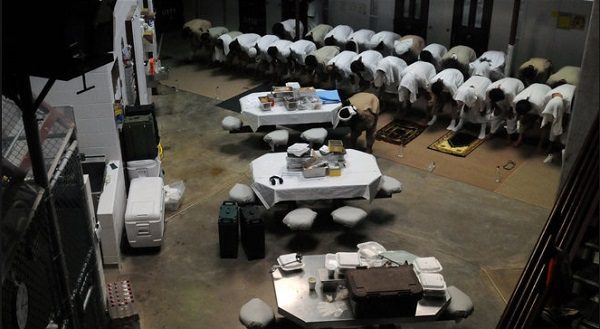
By Dr. Maha Hilal
They can take everything you own-your property, your best years, all your joys, all your good works, everything down to your last shirt — but you’ll always have your dreams so you can reinvent your stolen world. — Yasmina Khadra
When I hear the word “Guantanamo,” there is little other than the notorious prison that I think about. It is difficult to comprehend that a city with vibrant life and culture exists in a space that the U.S. has managed to turn into a place of great ugliness. Because of Guantanamo Bay prison being less than 15 miles away, the United States has successfully in effect erased the beauty of Cuba from one of its most beautiful cities.
I find it almost impossible to see the beauty of Guantanamo because of the injustice in the form of the prison.
Based on a piece of occupied land, the prison houses an exclusively Muslim male population that Donald Rumsfeld referred to the as the “worst of the worst.” Beyond the myriad of negative tropes and dehumanizing social constructions lies a population that exists at the nexus of imperialism and Islamophobia.
This population — disregarded, dominated, defeated and tortured — has faced the most egregious of injustices; injustice consisting not only of physical and psychological torture, but the injustice of being erased, the injustice of existing as the living dead and the injustice of being denied victimhood.
In the beginning of my trip to Cuba, I attended the fourth annual International Seminar for Peace and the Abolition of Foreign Military Bases,learning about the economic, environmental and social consequences of the U.S. Naval base. However, absent from the conference was any mention of the world’s most notorious prison.
As a Muslim, I found this hard to comprehend and had many questions. Questions such as: Did their lives not matter? Did no one care that Muslims were literally being tortured so close to where they lived? Was this disregard for their mention a product of deeply woven Islamophobia?
I couldn’t leave without mentioning of the prisoners, as I had come to Cuba to lift their stories up. Thus, I asked one of the organizers if I could I speak briefly about the prison, that it held a Muslim only population. I was permitted to do so and after speaking for 10 minutes, my dear friends and fellow delegates held up banners that said, #innocentuntilprovenmuslim, #muslimsrally2closegitmo, #justice4muslims.
The audience responded with a standing ovation. And, though this was affirmation that my message had resonated, I still wondered what this meant for the prisoners held in Guantanamo.
I left the conference with one pressing question: Were the prisoners unknown or forgotten?
If they were known, would they subsequently be forgotten and erased? Did their lives only exist as an impediment to Cuban sovereignty? This is the violence that surrounds the lives of the prisoners of Guantanamo Bay; not just the violence of their treatment, but the violence of the discourse that positions them as pawns of the nation-state system through which they are to claim their rights that have been denied. A system that they are ousted from, but from which they must appeal to; a system that is bent on destroying them and then casting them aside like yesterday’s trash; a system that teaches others to devalue their lives as much we value our security.
As my time in Cuba has come to a close, I know the journey to set these prisoners free is not simply about closing the prison. It is about lifting up the lives of those who have been so dehumanized. It is about bringing their dehumanization to light, so others know they exist.
It is about protecting them from the violence of erasure of the erasure of the violence they’ve endured. It is about helping the prisoners reinvent their stolen worlds.
It is about justice and nothing less.
Dr. Maha Hilal is the Executive Director of the National Coalition to Protect Civil Freedoms. She is also an Adjunct Professor at George Mason University. Dr. Hilal earned her PhD from American University and holds a Master’s degree in Counseling and a Bachelor’s degree in Sociology from the University of Wisconsin-Madison.











